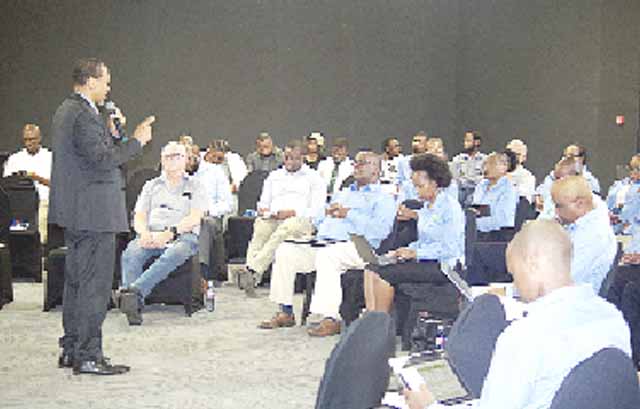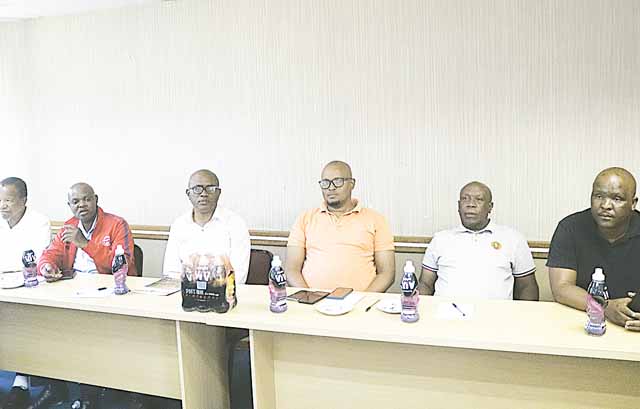By Sitakele Maseko Community Circles Coordinator | 2024-11-27
In Eswatini, women and girls face a complex array of challenges, deeply rooted in traditional gender roles, economic barriers and a culture that often silences conversations about gender-based violence (GBV).
Every year, from November 25 (the International Day for the Elimination of Violence Against Women) to December 10 (Human Rights Day), the world unites for the 16 Days of Activism Against Gender-Based Violence.
The 16 Days of Activism serves as an urgent call to not only raise awareness but also push for systemic change.
This campaign advocates for a society that protects its most vulnerable members, empowers women and girls and works towards a future free of gender-based violence.
The 16 Days of Activism against Gender-Based Violence is also a crucial opportunity to reflect on the ongoing struggles faced by women and girls in Eswatini and to renew the commitment to creating a safer, more equal society for all.
Data indicates that abuse continues to be a significant public health concern in Eswatini. According to the 2023 National GBV statistics, 18 236 incidents were reported in 2023; 43 per cent (5000) of reported perpetrators were intimate partners of the survivors; intimate partner violence committed by (ex) boyfriend / girlfriend, (ex) husband / wife; 64 per cent of abuse incidents occur within the home or domestic setting Majority of the abuse survivors are female (women and girls) at 66 per cent (11595) and men and boys make up 34 per cent (6006) which is an increase by 3 per cent from the last reporting period.
The Everyday Struggles of Women and Girls in Eswatini
In Eswatini, women and girls live in a society where entrenched gender norms define their roles and limit their freedom.
While progress has been made in areas like education and healthcare, significant barriers remain.
1. Gender-Based Violence (GBV): One of the most pressing challenges is the high prevalence of GBV, which affects women and girls at various stages of life. Physical, sexual and emotional abuse is common across homes, workplaces and communities.
Intimate partner violence is especially pervasive, and many women endure this violence in silence, fearing stigma or retaliation.
2. Teenage pregnancy: Teenage pregnancy is a significant issue in Eswatini, with profound social, economic and health implications for young girls. Despite efforts to address it, the rate of teenage pregnancy remains high, and it is considered a key factor in perpetuating gender inequality in the country.
3. Reproductive Health and Rights: Women and girls in Eswatini also struggle with limited access to reproductive health services, including family planning, maternal care and safe abortion options. High rates of teenage pregnancy further exacerbate gender inequality, resulting in long-term social and economic consequences for young women.
4. Cultural Norms and Gender Expectations: In many areas of Eswatini, traditional gender roles dictate that women's primary responsibilities lie within the home, caring for children and supporting their husbands. These expectations restrict women's autonomy and limit their participation in social, political and economic spheres.
The 16 Days of Activism Against Gender-Based Violence: A Call for Change
From November 25th (International Day for the Elimination of Violence Against Women) to December 10th (Human Rights Day), the world unites for the 16 Days of Activism Against Gender-Based Violence. This global campaign seeks to raise awareness of the widespread nature of GBV and emphasise the need for collective action to end it.
In Eswatini, the 16 Days of Activism focuses on several key issues:
1. Raising Awareness: Throughout these 16 days, efforts are made to highlight the widespread violence faced by women and girls. Raising awareness is the first step towards change.
When we speak up, we break the silence, challenge harmful norms and empower individuals to take action for a better, more just society. Community dialogues and media campaigns amplify the voices of survivors, break the silence and encourage the public to actively engage in the fight against GBV.
2. Challenging Harmful Norms: The campaign calls for a shift in societal attitudes towards gender equality. It challenges harmful norms, such as the belief that men have the right to control women’s bodies, and advocates for greater gender equity in both public and private spheres.
3. Supporting Survivors: A key focus of the 16 days is the need for stronger support systems for survivors of GBV, including accessible legal services, healthcare, counseling, shelters and resources to help women and girls rebuild their lives after violence.
4. Legal and Policy Reform: Advocating for stronger laws and policies that protect women and girls from violence and discrimination is central to the campaign. This includes calls for better enforcement of existing laws and the creation of more robust frameworks for gender justice.
5. Promoting Economic Empowerment: GBV has significant economic impacts, often leaving survivors financially unstable.
Economic empowerment is not just about financial independence; it is about giving individuals the tools to control their own future, break the cycle of poverty and create lasting change in their communities.
The 16 Days of Activism emphasise the importance of economic empowerment in breaking the cycle of violence. Ensuring women have access to education, employment and financial independence is vital to ending GBV.
6. Engaging Men and Boys: Ending gender-based violence requires the active involvement of men and boys, for true change comes when everyone takes responsibility, challenges harmful norms and stands together for respect and equality.
A central message of the campaign is that the fight against GBV is not solely a women’s issue but a societal issue. In Eswatini, as in many other countries, men and boys are being called upon to play a more active role in preventing violence, promoting respect and challenging patriarchal norms.
share story
Post Your Comments Below

LUNGELO Nhlengetfwa, Schools Manager from the Ministry of Education and Training, has expressed c...

Under the leadership of newly- appointed CEO, Thokozani 'TK' Dlamini, First National Bank E...
In Eswatini, women and girls face a complex array of challenges, deeply rooted in traditional gen...

SOCCER - NO hard feelings, as 'Birds' of the same feather fly together! The capital city giants o...
All material © Swazi Observer. Material may not be published or reproduced in any form without prior written permission.
Design by Real Image Internet